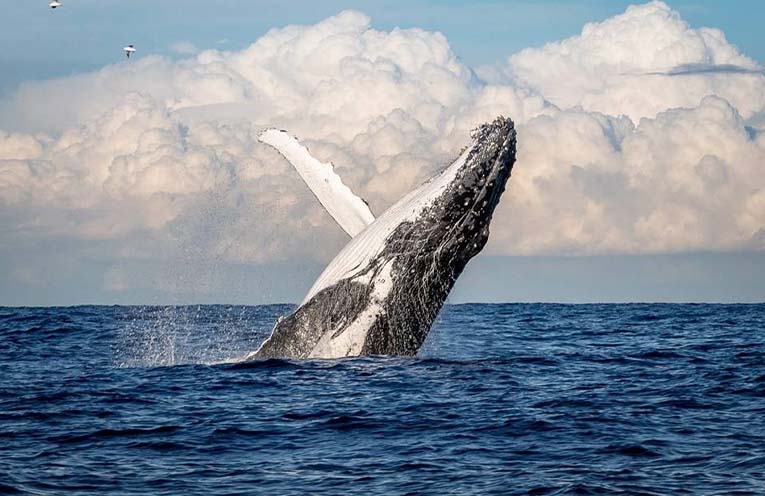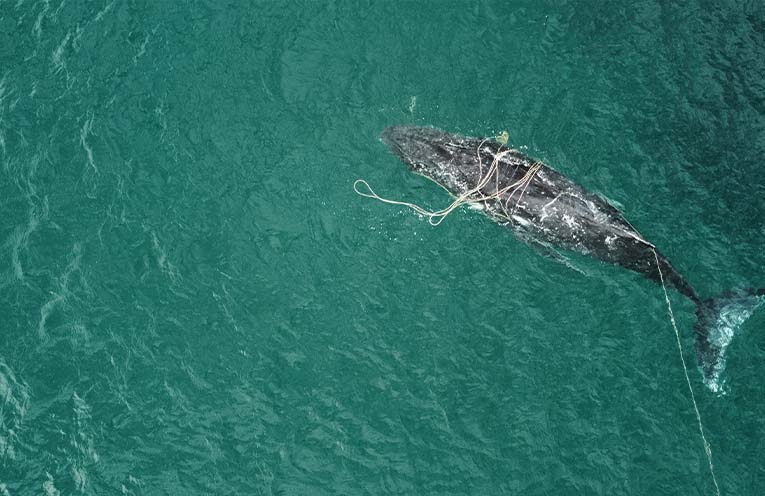
WITH the first humpback whales of the season now being spotted, an expanded team of specialised rescuers are poised and ready to launch as tens of thousands of majestic humpback whales begin their annual migration along the NSW coastline.
The NSW National Parks and Wildlife Service (NPWS) Large Whale Disentanglement team boasts 45 professionals, including a new team of eleven people based out of the Hunter Central Coast Branch who have recently completed their training, ensuring better state-wide coverage for whale rescue operations this migration season.
 Advertise with News of The Area today.
Advertise with News of The Area today.It’s worth it for your business.
Message us.
Phone us – (02) 4981 8882.
Email us – media@newsofthearea.com.au
NPWS Marine Wildlife Team Leader Duane March said, “It’s fantastic to have expanded the capacity of our highly specialised Large Whale Disentanglement Team as the humpback highway gets underway for 2024.
“Our ability to respond to whale entanglements is crucial, given the risk they face from fishing gear and other marine debris.
“With our expanded team in place, we’re better equipped to help these whales if they find themselves in distress in NSW coastal waters.
“While this increased capacity is a positive step, whale disentanglements are inherently dangerous and dependent on weather and sea conditions.
“The safety of our teams is always the number one priority.
“We can’t always guarantee a successful rescue, but we’re committed to doing everything in our power to help these animals when we can.”
Each year, humpback whales undertake one of the longest migrations in the animal kingdom, travelling up to 10,000 km from the Southern Ocean to breeding grounds in warmer climates.
As they travel through inshore Australian waters, humpback whales are susceptible to becoming entangled in fishing gear and other marine debris which can lead to fatigue, injury, and death.
In 2023, thirteen humpback whales were successfully freed from entanglements off the NSW coastline.
If conditions allow, the NPWS will team launch small inflatable boats, along with a larger support vessel, to approach an entangled animal and assess the entanglement, the animal’s condition, speed and behaviour.
They then plan a release strategy to cut the animal free, which sometimes involves slowing the animal down by temporarily attaching large buoys.
Disentanglement rescues can sometimes take multiple days of tracking before a successful intervention can be made.
The NPWS crew work with partner organisations including Marine Rescue, ORRCA and Sea World to optimise state-wide coverage for whale rescue operations.
The Large Whale Disentanglement Team is one component of a broader project to understand and minimise the risk of humpback whale entanglements.
The NSW Government is working with the fishing industry to develop whale- and dolphin-friendly equipment less likely to lead to entanglements, while scientific research continues to better understand the drivers of whale migration and entanglement risks.
People enjoying our coasts and waters are encouraged to enjoy the spectacle of the humpback whale migration but are reminded to stay at a safe distance and avoid interfering with the animals.
If you see a distressed or entangled whale, contact the NPWS on 13000PARKS (1300 072 757) or ORRCA on 02 9415 3333.
For more information about the best whale watching locations in NSW and the NPWS Large Whale Disentanglement Team, visit: https://www.nationalparks.nsw.gov.au/wild-about-whales


